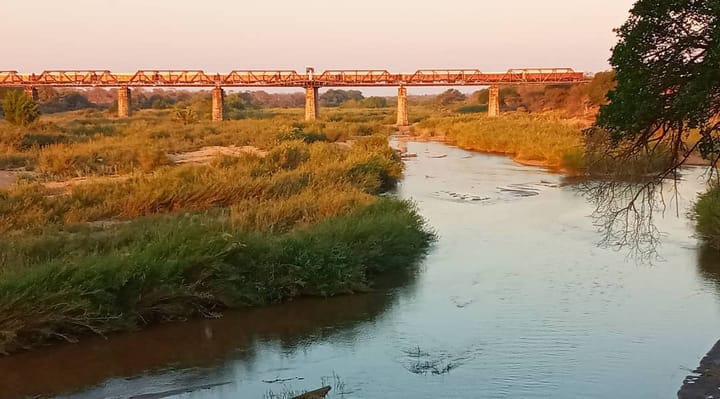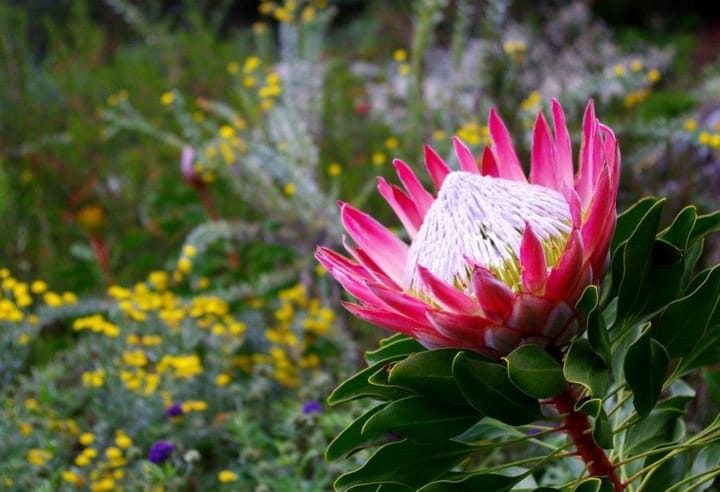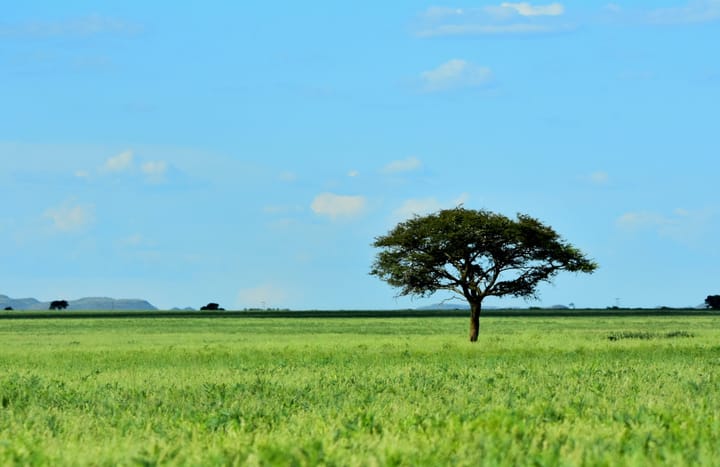I don't like the Kruger National Park…
Kruger isn’t just a safari destination. It’s a place that stirs something deep in the soul. This is a love letter to South Africa’s wild heart.


When you travel extensively, you realise that all places in the world leave you with a memory - either good ones, unforgettable ones, and often you wish you had never visited them in the first place. For me, the Kruger National Park is classified under the last type.
The reason for that is that it has a habit of crawling under your skin, rearranging your insides, and sending you back into civilisation grinning like a fool at the mere mention of impala.
Yes, I really don’t like the Kruger. I simply, shamelessly, love it.
Stretching over 19,000 square kilometres across Limpopo and Mpumalanga provinces in northeastern South Africa, Kruger is not just a park. It’s a state of mind. The kind that has you setting a 5:00 am alarm voluntarily, so you can be first at the Phabeni Gate when it opens, clutching a flask of coffee and hoping for a glimpse of the elusive leopard slinking across the H4-1 tar road.
If that sounds a touch dramatic, it's because everything about Kruger is extraordinary. The silence is deeper, the colours more saturated, and the animals – well, they're not interested in impressing you. They’re just living their best, wild lives while you sit in your car whispering "buffalo" like a prayer.
One of Kruger’s many joys is how much it rewards patience. Game-viewing here is like a cross between birdwatching and extreme bingo. You may drive for an hour and see only a lilac-breasted roller perched on a thorn tree, until, suddenly, there’s a lion next to the road, casually swatting flies with his tail.

Moments like these don’t happen on schedule. They happen when you forget your expectations and start noticing the small stuff: a dung beetle doing its tireless thing, or a family of vervet monkeys playing like toddlers with sugar rushes.
The Big Five may get the most attention, but Kruger’s magic is in the details. The park is home to over 500 species of birds, 147 species of mammals, and thousands of trees, reptiles, insects, and grasses. It is a living, growling, chirping library of southern African ecology. And because Kruger is so vast, each region feels like a different chapter.

The mopane woodlands of the north around Punda Maria have an almost mystical stillness, while the southern grasslands near Lower Sabie bubble with activity and sightings. The central region around Satara is predator country, where the tawny lions look like they’ve just stepped out of a coffee-table book on wilderness.
Self-driving through Kruger is an unmatched joy. The park’s extensive network of well-maintained roads (both tarred and gravel) makes it ideal for independent travellers. Whether you follow the Sabie River route along the H10 towards Tshokwane or detour to the gravel loops near Biyamiti Weir, there’s always a sense of anticipation around the bend.

Best of all, you don’t need a 4x4 - just time, a map, and the humility to accept that the animals are in charge. One moment, it’s all clear skies and impala traffic, and the next, a stubborn elephant bull stands in the road pretending you don’t exist.
Accommodation ranges from rustic bushveld camps like Balule, where the hyenas laugh outside your tent at night, to more structured rest camps like Skukuza, complete with shops, petrol stations, and riverside restaurants.
There’s something oddly thrilling about eating a toasted sandwich while watching crocodiles sun themselves below. Even if you opt for luxury lodges in private concessions like Singita Lebombo or Jock Safari Lodge, the wilderness feels immediate and untamed.

And then there are the people. Kruger is a place of rituals passed down in whispers - the best spots for lion sightings, the quirkiest picnic sites, the trusted route to see sable antelope. Everyone has a theory, and most of them are wrong, but that’s part of the fun.
The shared experience of early mornings, roadside coffees, and brake-light sightings binds visitors in a unique kind of camaraderie. It’s also the only place where absolute strangers will reverse a kilometre just to point out a sleeping rhino.
Some go to Kruger once and tick it off. Then there are the rest of us who start planning our next trip before we’ve left the park gates. We know the smell of the bush after rain, the slow glide of a martial eagle above the canopy, and the gentle satisfaction of spotting a rare saddle-billed stork without help.
We also know the crushing disappointment of driving 300 km without seeing a cat, and yet still feeling like the luckiest person alive.


So no, I don’t like the Kruger. That would imply some level of detachment or moderation. I love it, irrationally and entirely. Even when it’s hot and dusty, and the lions are hiding. Even when the camp shop is out of Amarula. Even when the hyenas drag someone’s flip-flop into the bush. I love it still.
Because Kruger, in all its wild, teeming, unpredictable glory, reminds me what it feels like to be a guest on the planet.

• 𝙵𝚘𝚛 𝚜𝚝𝚘𝚛𝚢 𝚜𝚞𝚋𝚖𝚒𝚜𝚜𝚒𝚘𝚗𝚜 𝚘𝚛 𝚛𝚎𝚟𝚒𝚎𝚠𝚜, 𝚌𝚘𝚗𝚝𝚊𝚌𝚝 𝙼𝚊𝚛𝚒𝚊𝚗𝚊 𝚟𝚒𝚊 𝚎𝚖𝚊𝚒𝚕 (𝚎𝚍𝚒𝚝𝚘𝚛@𝚝𝚑𝚎𝚝𝚛𝚊𝚟𝚎𝚕𝚝𝚑𝚛𝚎𝚊𝚍.𝚌𝚘.𝚣𝚊).
• 𝙵𝚘𝚛 𝚙𝚊𝚛𝚝𝚗𝚎𝚛𝚜𝚑𝚒𝚙𝚜, 𝚖𝚊𝚛𝚔𝚎𝚝𝚒𝚗𝚐, 𝚘𝚛 𝚌𝚘𝚗𝚝𝚎𝚗𝚝 𝚎𝚗𝚚𝚞𝚒𝚛𝚒𝚎𝚜, 𝚌𝚘𝚗𝚝𝚊𝚌𝚝 𝙰𝚗𝚌𝚑𝚎𝚗 𝚟𝚒𝚊 𝚎𝚖𝚊𝚒𝚕 (𝚊𝚗𝚌𝚑𝚎𝚗@𝚒𝚘𝚕𝚘𝚐𝚞𝚎𝚖𝚎𝚍𝚒𝚊.𝚌𝚘𝚖) 𝚘𝚛 𝚜𝚎𝚗𝚍 𝚊 𝚆𝚑𝚊𝚝𝚜𝙰𝚙𝚙 𝚑𝚎𝚛𝚎.




Comments ()